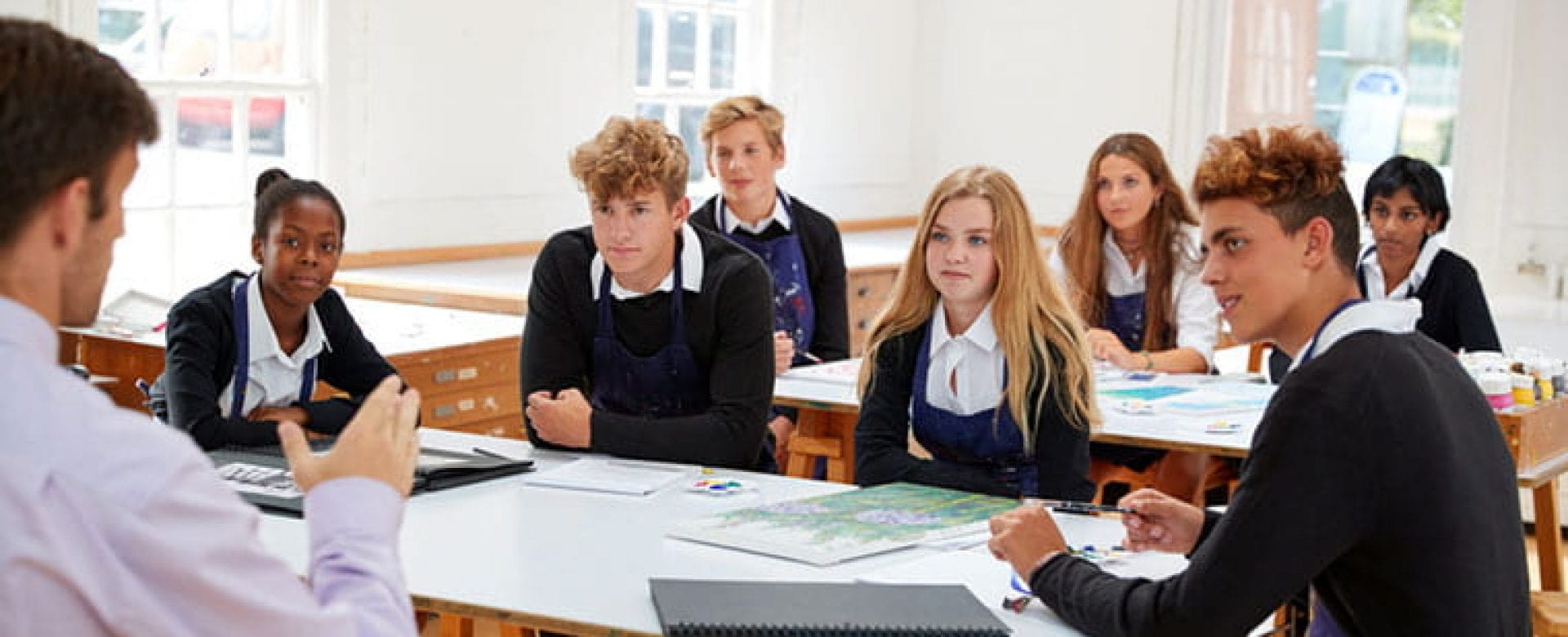
EMPOWERING young minds.
So…let’s go back to basics.
A question: “In 2023, what are schools for?”
There is an argument that the internet has all the information that any child might need to ‘educate’ themselves. So… (and I know this will not please many, if any, schoolteachers) …what are we doing working in a school, teaching set subjects in self-contained silos, when possibly we could be more useful teaching young minds how to find good information on the internet, and how to join up the dots between subjects? Might that be a better way to develop young minds so that they are, ‘ready for work and ready for life’? (Keir Starmer, The Road Ahead)
Three seminal quotes bring me to the foundations on which the idea of empowering self-education in young students is built.
First, that ‘the purpose of education is to lead children towards intellectual development’ (Renner),
Second, that the aim of education is ‘learning to learn’ (Piaget), and
Third, which synthesises the first two, that the happiness of mankind comes from education, which is about learning how to develop mental facilities, how to express opinions and how to develop dialectic reasoning (Aristotle) or, as Leonard Nelson wrote, ‘making philosophers of students.’
However, in 2005, before the internet had become so readily available, Susan Finley had argued in, ‘Arts-based inquiry: performing revolutionary pedagogy’, that there is work for the teacher to do. Finley wrote that the teacher’s task is: ‘to provide tools for constructing new autobiographical images by taking students back to the past in order to contextualise their present inheritance of a previous society’s discoveries and then point learners towards exploration of their own possible futures.’ It could be argued that Finley’s argument is a humanistic way of thinking about an educational system which aims through teacher intervention to empower students – rather than treat them merely as empty vessels into which facts are poured.
So perhaps there is a future role for teachers? And perhaps it is about how to empower young students?
The Key question I am exploring is: ‘How might teachers meaningfully empower young students?’
I use the word ‘meaningfully’ quite deliberately. There is no greater turn off for youngsters than being patronised – being encouraged to think for themselves and then ignored or fobbed off with adults’ platitudes. So, if the young are to develop the mindset that their thoughts and ideas are to be both listened to and considered – which has enormous repercussions on their sense of self-worth through all of their life worlds (in and out of school) – then adults need to listen hard, consider seriously, and give meaningful feed-back to what young people are saying.
Hence the use of ‘meaningfully’ in the Key question above.
So…let me start the ball rolling with two ideas on how to empower young students.
Let me start at the start of the school day…(I am indebted to Sprakes and Harri, Executive Principal and CEO of the ‘XP School’, Doncaster. Quotes are from, How We XP).
First, what if the school’s dress code is: ‘Please dress appropriately and modestly’. In other words, no school uniform.
Sprakes writes that the result of the above rule is that, ‘we don’t spend very much time at all discussing the clothes our students wear. Our students think about what is appropriate and what ‘modest’ means.’ Let’s be honest, dress code takes up too much resources for students and teachers alike and truthfully for what end? Squashing respectful individuality in favour of homogenised uniformity. A no-dress code empowers young students to think about the impact on the school community if they dress inappropriately. It empowers them to dress appropriately – for the common good.
Sprakes does note that, ‘about once a year, some student appeals to me to look at pushing the boundaries (of what is appropriate and modest), I push back and ask them to have a conversation with their fellow students (Crew). They normally don’t, and that’s that for the year’.
Which leads me onto my Second observation about the start of the school day…
The ‘XP School’ in Doncaster does not have a school Council. They have a concept called ‘Crew’ time instead. There are no passengers in the ‘XP School’, all – teachers and pupils alike – are there to learn, develop and work together – like a Crew on a ship. However, the ‘XP School’ does give all their students a voice.
Every morning, in Crew meetings of 45 minutes (08.30-09.15), ‘all students can express who they are through praise, apology, and pledges.’ Crew meetings pastorally prepares the students for the day, ‘We do many activities in Crew, including academic Crew. Our students describe it as being like a family in school, a home from home. We hold each other to account for the pledges we make, and we support and challenge, appropriately guided by the Crew leader. In Crew we lean the purpose, meaning and reward of working hard. In Crew we learn how to get smart. In Crew we learn to be kind to each other.’
From day one of Y7 the same Crew members of about 12 students meet and are given a voice. And every Friday a whole school meeting is held to share students and teachers’ experiences – both positive and negative – during the past week.
In Crew, and in whole school assemblies, students are engaged and empowered to develop the 4Cs – Communication, Collaboration, Creativity and Critical Reflection. With this 4Cs approach, students develop greater capacities for resilience, empathy, altruism, and the ability to think and work with others – all skills which increase both academic attainment and help learners to become ‘ready for work and ready for life’.
So, two ideas on how to start to meaningfully empower young students in their school.
This is the start of the ‘EMPOWERING young Minds’ Blog – now, over to you…
Dr Brian Lighthill

